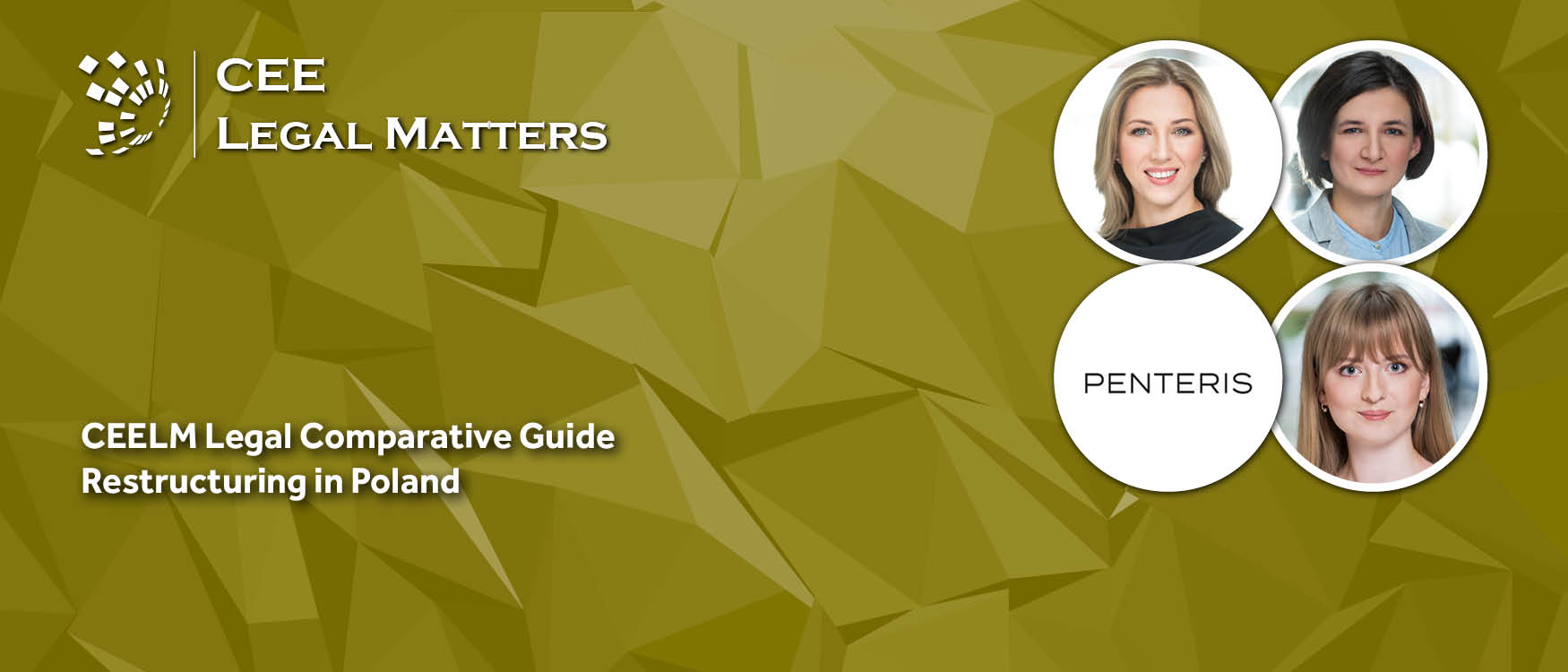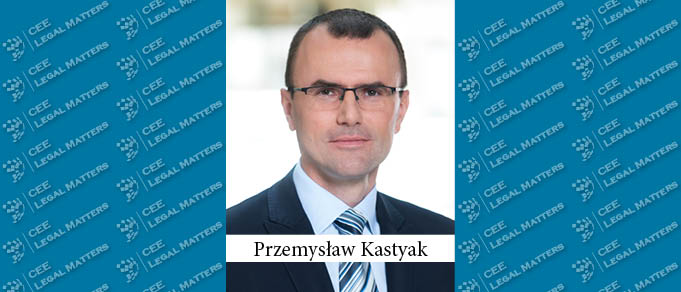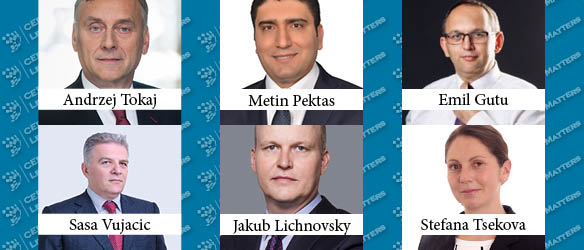Clifford Chance has advised Norsk Hydro on a renewed tender offer for the purchase of 100% of the shares in Alumetal. Penteris advised Alumetal.
Poland: The Why, the Who, and the What of White-Collar Crime
Poland is on the verge of implementing the long-awaited new rules on corporate liability for white-collar crimes. This is the second such attempt after an initial legislative proposal was flushed down the drain, only two years ago, amid vehemently critical reviews from entrepreneurs and business associations right across the country.
The CEE Winter Shutdown
With numerous reports of energy-related business shutdowns, we reached out to local experts across CEE to understand what different markets have been dealing with, in terms of work and production stoppages, and look into the broader impact.
Piotr Prokocki Joins Penteris as Head of Tax
Former Vistra Senior Tax Manager Piotr Prokocki has joined Penteris as a Senior Associate and the firm’s new Head of Tax.
Spend It All Before It’s Gone: Investment Safe Harbors in CEE
Considering the current state of affairs in CEE, market dynamics have shifted in terms of where investors are looking for safe investment opportunities, with some sectors seeing steadier capital flows and others struggling. Our experts chart the current hotspots and consider whether the markets are set to shift again.
(Re)constructing Restructuring and Insolvency in CEE
There is a growing concern, across CEE, about a potential wave of insolvency and restructuring proceedings. Given the economic aftermath of COVID-19, coupled with the ramifications of rising inflation and interest rates, energy crisis concerns, and the war in Ukraine – the road ahead seems bumpy at best.
Sebastian Janicki Makes Partner at Penteris
Former Senior Associate Sebastian Janicki has been promoted to Partner at Penteris.
In Search of a New Home: Business Relocation Trends in CEE
With the war in Ukraine raging for more than six months, law firms across the region have reported increased workloads in corporate and M&A, tax, employment, immigration law, and inquiries on the sanctions regimes in relevant jurisdictions, noting that companies from Ukraine, Russia, and Belarus are variously looking for a new home. Whether to avoid sanctions or escape the war, those companies consider a variety of factors in determining where to go.
Penteris, HKV, and Oppenheim Advise on Immofinanz's EUR 324.2 Million Acquisition of Retail Portfolio from CPI
Penteris, HKV, and Oppenheim have advised Immofinanz on the acquisition of a retail property portfolio from the CPI Property Group for EUR 324.2 million. Reportedly, BPV Braun Partners advised Immofinanz as well.
Restructuring Laws and Regulations in Poland
Contributed by Penteris.
The Latest on Polish Real Estate
One might have hoped that, with the pandemic fading, the real estate market was bound to bounce back in 2022, despite interest rates rising since October 2021. And bounce back it did, at least in the first quarter, when investments in commercial real estate reached EUR 1.7 billion, including Google’s landmark acquisition of a Warsaw office building for nearly EUR 600 million. The Russian aggression against Ukraine, coupled with growing cost pressures, created the current market conditions that will continue to shape the CEE real estate market for the foreseeable future.
Patch Released: The Polish Deal 2.0
On January 1, 2022, a “historic tax reform” – as referred to by the Polish government – came into force, with major changes implemented into Poland’s tax system. Just a few months later, another tax reform package, now known as the Polish Deal 2.0, was introduced. We spoke with Penteris Head of Tax Artur Plutowski and PwC Legal Partner Katarzyna Komorowska to learn what was the driving force behind the update and how it will impact the business sector in Poland.
Round Six: The European Union Ban on Russian Energy Imports
The sixth package of European Union sanctions imposed on Russia is a widely discussed topic, yet the overall levels of preparedness to adopt the associated energy import ban varies from one country to another. Indeed, with Russian oil and gas exports being such a dominant source of energy for a number of European countries, it remains to be seen how all of them adapt to the change. To gain insight into how certain EU member states and non-EU countries are (likely) to fare in the immediate wake of the ban, we reached out to legal professionals from Turkey, Poland, Bulgaria, the Czech Republic, and Moldova.
Poland: Recent Developments on the Energy Market
Recent global events, in particular the Russian aggression against Ukraine and subsequent restrictions on the supply of fuel (including coal, oil, and gas), have negatively impacted not only the Polish but the global energy market.
Poland's Polarising Points: A Buzz Interview with Przemyslaw Kastyak of Penteris
Major transactions are taking place in the energy sector in Poland and the country is preparing to address gas shortages for the upcoming winter, while dealing with soaring inflation and high-interest rates, according to Penteris Partner Przemyslaw Kastyak.
CEE Legal Matters Round Table on ESG: Finance Goes Green
On July 12, four leading lawyers from Croatia, Lithuania, Poland, and Romania sat down for a virtual round table moderated by CEE Legal Matters Managing Editor Radu Cotarcea to discuss the latest in ESG developments with a focus on green financing, its regional and local drivers and roadblocks, its impact on non-financial reporting, and what it all means for the legal profession.
Recovery and Resilience Plans in CEE: Overview and Implementation
Entering into force on February 19, 2021, the EU Recovery and Resilience Facility aimed, according to the European Commission, “to mitigate the economic and social impact of the coronavirus pandemic and make European economies and societies more sustainable, resilient, and better prepared for the challenges and opportunities of the green and digital transitions.” CEE Legal Matters spoke with lawyers from Bulgaria, Greece, Hungary, Latvia, Poland, and Romania to learn what each country focused on, with its Recovery and Resilience Plan (RRP), and what difficulties lie ahead, now that these plans have been submitted to the EC.
In Search of a New Energy Normal (Part 2) – What’s the Plan?
Energy prices have been a salient issue in CEE for the past year. Part 1 of this article covered just how high the energy prices had climbed in Bulgaria, the Czech Republic, Moldova, Montenegro, Poland, and Turkey, the impact of those prices on people, businesses, and governments, as well as the reasons why some countries fared better than others. Then Russia’s war against Ukraine changed everything, making a new energy pricing normal seem more distant than ever. In Part 2 we look at what energy experts believe could alleviate the situation and whether the war has impacted those plans.













































